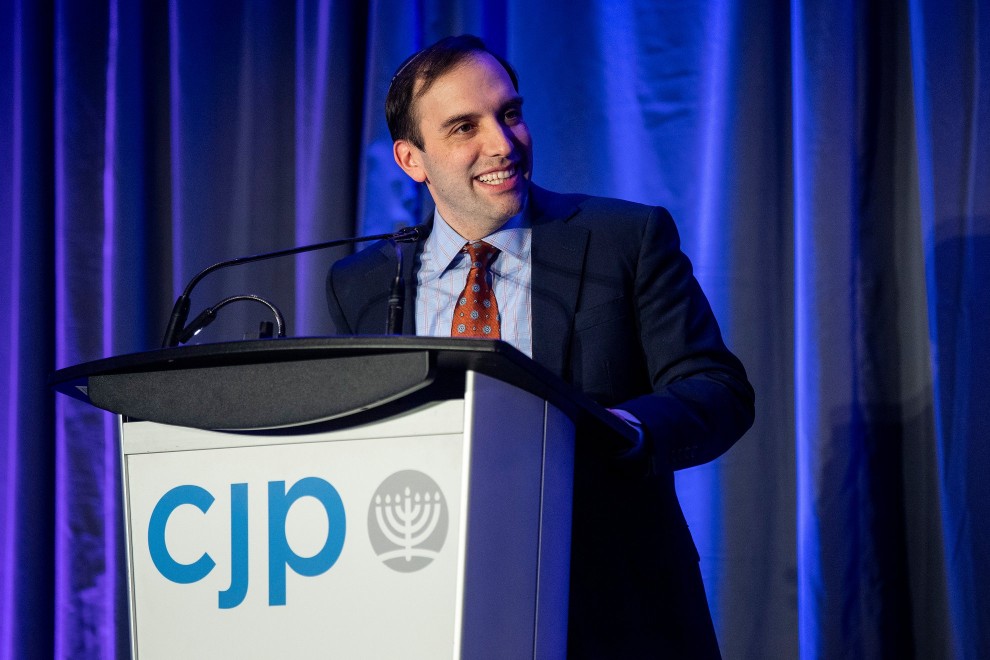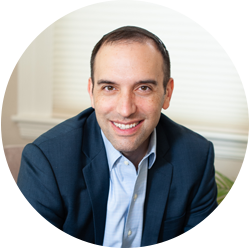
Shalom Chaverim,
Almost two weeks ago I attended an uplifting CJP event, our annual Chai in the Hub celebration at which a capacity crowd of more than 500 young adults gather to honor 10 outstanding young leaders in our community, hear an inspiring speaker, and just have fun.
As I told the overflowing room, their presence and support for CJP gives me hope for the future of our people and our society at a time when conventional wisdom says that our next generation is disengaged from Jewish life and disinterested in the organized Jewish community.
I know that, despite the number of people in that room, there are many more who are not yet connected to Jewish community. That is our collective challenge and opportunity moving forward. Yet, the energy in that room and the number of young people who are connected and show up illustrate that the sacred work of creating powerful social connections and passing the torch to our next generation is well underway across our community.
In my remarks that evening, I shared that this work of creating communities is what we do and why CJP exists; it is how we live out our mission to care for one another and to pursue justice, to strengthen Jewish life, and to improve the world. I read a powerful letter of gratitude from an Israeli Arab woman named Nadia, whose life has been transformed by a Parents at the Center (PAC) community in Haifa that CJP volunteers helped to create through our Boston-Haifa partnership. PAC supports new mothers from every background in Israel during a life-stage that can often be challenging and socially isolating, empowering them to create relationships and support one another. She reflected on PAC’s impact on her life in her letter:
“The Center and its welcoming staff literally saved me... I have made many friends — Russian immigrants, Jews, Ethiopians, as well as other Arabs, some Muslim and some Christian... I developed a very special friendship with Asmaru Abate, an Ethiopian-Israeli Jew who for years was my neighbor, but only since we joined Parents at the Center Parents Leadership Forum, we got to really know each other and grew very close. (This) Forum gave me the opportunity to become a leader and work hand-in-hand with parents from different origins and religions to volunteer and strengthen our community.”
I thought about Chai in the Hub and of Nadia’s story when I read David Brook’s op-ed this week about “weavers.” Brooks laments the pain he observes across the country caused by “our lack of healthy connection to each other, our inability to see the full dignity of each other, and the resulting culture of fear, distrust, tribalism, shaming, and strife.”
His piece shines a light on an antidote to this epidemic: “Weavers share an ethos that puts relationship over self. We are born into relationships, and the measure of our life is in the quality of our relationships... The phrase we heard most (from weavers) was 'the whole person.' Whether you are a teacher, a nurse, or a neighbor, you have to see and touch the whole person... Every time you assault and stereotype a person, you’ve ripped the social fabric. Every time you see that person deeply and make him or her feel known, you’ve woven it.”
Brooks described what I’ve come to see as one of the most critical roles that CJP can play in our community: helping to “create hubs where decentralized networks can come together for solidarity and support,” strengthening “social identity,” and inspiring a “sense of mutual purpose.”
Perhaps this concept of “weaving” is also a way to understand why the Israelites were commanded to build a mishkan, a tabernacle — a sacred dwelling space for the Divine — at the center of their camp before beginning their journey through the wilderness. The mishkan was a temporary structure that could be constructed and deconstructed anywhere. It was not the physical structure itself, but rather the act of building, of weaving, that connected them to one another and to a purpose greater than themselves. This was our ancestors’ task thousands of years ago, and it remains our social, moral, and spiritual responsibility today.
Shabbat Shalom,
Rabbi Marc Baker
If you'd like to sign up for my biweekly messages, don’t forget to sign up here.

About the Author
CJP President and CEO Rabbi Marc Baker is an educator, writer, and leadership mentor who is devoting his life to Jewish learning and building Jewish communities.
